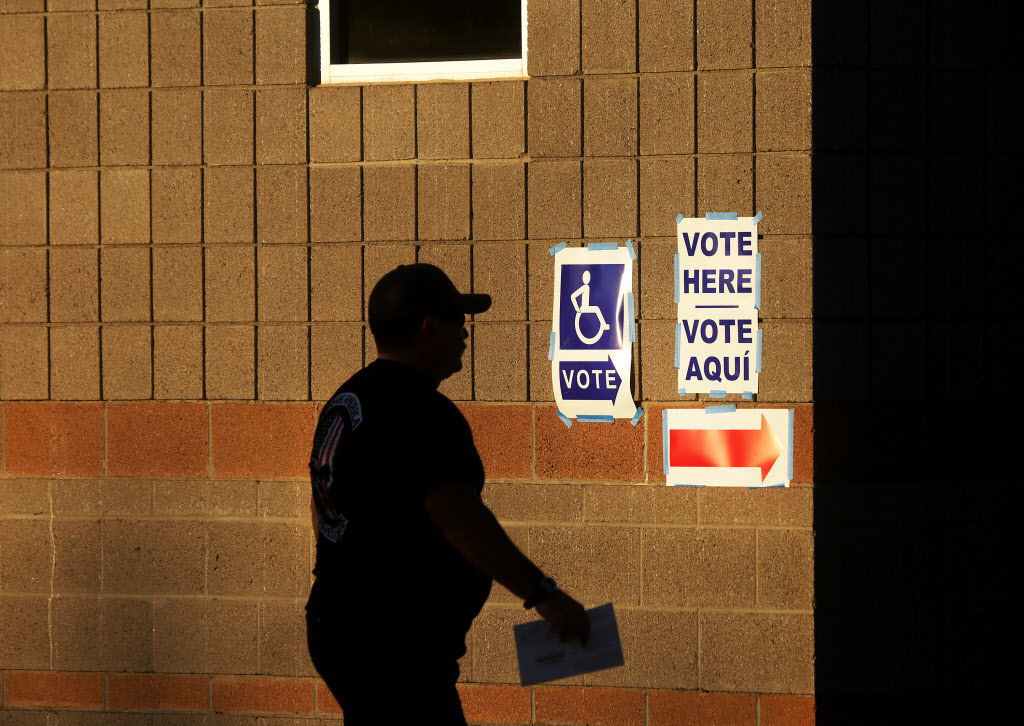PHOENIX — Republican lawmakers advanced four measures Thursday taking aim at citizens’ right to propose laws through ballot initiatives without legislative interference or veto.
However, voters would get a chance to reject two of them in 2018 if they don’t agree.
The package of legislation comes on the heels of intensive lobbying by business interests upset that 2016 voters approved hiking the state’s minimum wage to $10 an hour now, and eventually to $12 an hour by 2020.
But it’s about more than the minimum wage: Business groups unsuccessfully opposed other ballot initiatives approved by voters, ranging from legalizing medical marijuana, to boosting taxes on tobacco, to banning leghold traps.
The effort does not seek repeal of the right of voters to enact their own laws, which dates to the first days of statehood. Instead, these proposals, all approved on a 5-3 party-line vote by the House Government Committee, seek to rein them in.
One target is the 1998 Voter Protection Act, a constitutional provision approved by voters, which bars legislators from repealing anything approved at the ballot. They can make changes only if they “further the purpose” of the original measure, and only with a three-fourths vote of the House and Senate.
HCR 2002 asks voters to repeal that 1998 restriction. Rep. Michelle Ugenti-Rita, R-Scottsdale, said other states that allow voters to craft their own laws do not similarly tie the hands of lawmakers.
Brian Hummell, lobbyist for the American Cancer Society, said repealing the Voter Protection Act would let lawmakers repeal the extra $1.42-a-pack tax that voters enacted on cigarettes. And Sandy Bahr of the Sierra Club said it would endanger voter-approved requirements to set aside dollars for land preservation and conservation.
Tomas Robles, who organized the just-approved Proposition 206 to increase the minimum wage, charged all four measures to be advanced by the Arizona Chamber of Commerce and Industry, which not only opposed his measure, but has a record of opposition to many other voter-proposed measures. Approval of HCR 2002, he said, would open the door to the chamber working to get lawmakers to repeal all of them.
“Instead of seeing the will of voters, you see the will of the Chamber of Commerce, you see the will of corporations that put profits over people,” Robles told lawmakers.
The panel also advanced a less-comprehensive version of the same measure. Two other measures approved Thursday are not subject to voter ratification.
One would ban anyone who does not live in Arizona from contributing to ballot measures. “People who finance these referendums from outside of the state actually never have to live under the consequences of the referendums that they’re sponsoring,” said Rep. Bob Thorpe, R-Flagstaff.
But Thorpe’s HB 2255 does not disturb the ability of out-of-state donors giving to political candidates for all offices. Thorpe ignored repeated requests to explain why he wants to preserve that right.
Rep. Ken Clark, D-Phoenix, cited U.S. Supreme Court rulings that struck down similar restrictions as unconstitutional. He said approval of this measure would force the state to spend money trying to defend it in court.
HB 2320 would require that all future initiatives contain a disclosure that they are subject to the Voter Protection Act and cannot be amended.
All four measures now need approval of the full House.





